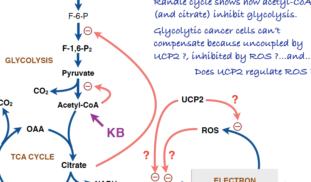Please wait...
About This Project
We've identified that ketone bodies, i.e. fuels in the bloodstream that result from a very low carbohydrate diet, metabolically inhibit growth of 7 cancer cell lines in cell culture, but not 3 normal cell types. Future cancer treatments using diet could become more effective and less toxic. We recently posted this project on Experiment requesting funds for supplies. We need salary for our superb technologist, as the NIH has not funded us, as they are committed to drug therapies.
More Lab Notes From This Project

Browse Other Projects on Experiment
Related Projects
Shutting down cancer’s recycling system with exosome-based therapy
Pancreatic cancer is one of the deadliest cancers because its cells survive by recycling their own components...
Developing a novel oxysterol antibiotic to combat drug-resistant tuberculosis
Drug-resistant tuberculosis (TB) is a consistently growing threat to global health. We have developed Oxy291...
Tote-Size portable incubator for rapid field work
Waiting for lab results is slowing science down! We are designing a fully open source portable incubator...





